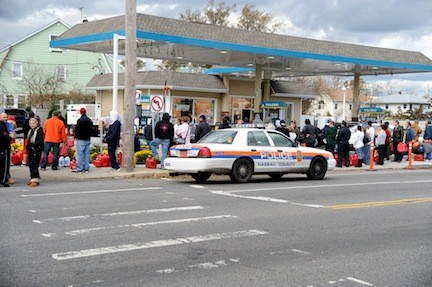Elmont station charged with gouging
An Elmont gas station is one of 25 stations that have been cited by New York state Attorney General Eric Schneiderman for price gouging in the days after Hurricane Sandy. Liberty Petroleum, on Hempstead Turnpike, was charging $6.99 per gallon in the aftermath of the storm, Schneiderman said, when power outages and delivery delays created a widespread gasoline shortage.
The Elmont station is one of three in Nassau County that the attorney general’s office is targeting with legal action. Liberty Petroleum received a notification letter after hundreds of customers filed complaints with Schneiderman’s office. Thirteen stations received notification letters in early November. A second round of letters went out to 12 more stations late last month, and Liberty Petroleum was among those in the second group.
“Our office will continue to take enforcement actions against price gougers, because ripping off New Yorkers is against the law,” Schneiderman said. “We are actively investigating the hundreds of complaints we’ve received from consumers of businesses preying on victims of Hurricane Sandy. There must be no tolerance for unscrupulous individuals who take advantage of New Yorkers trying to rebuild their lives.”
Liberty Petroleum was charging some of the highest prices among the second group of 12 notified by Schneiderman. At one Bronx station, a woman who filed a complaint told Schneiderman’s office, she waited in line for over an hour and was three cars away when she was told she would be charged $10 a gallon and cut off after five gallons.
When Gov. Andrew Cuomo declared a state of emergency following the hurricane, the law prohibiting price gouging automatically went into effect. The state of emergency met the definition of an abnormal disruption of the market, which triggered activation of the statute. According to New York State General Business Law, “An abnormal disruption of the market is defined as any change in the market, whether actual or imminently threatened, that results from triggering events such as weather events, power failures, strikes, civil disorder, war, military action, national or local emergency or other causes.”

 50.0°,
Overcast
50.0°,
Overcast 




